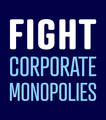Who is Richard Neal?
Rep. Richie Neal relies on corporate campaign money more than almost anyone else in Congress. More than half his fundraising comes from such groups, and he is second in raw dollars only to Rep. Kevin McCarthy.
Those corporate donors get their money’s worth out of Neal. His role as Chairman of the House Ways and Means Committee makes him one of the most powerful lawmakers in the country. He has repeatedly used that power to help the corporations who bought him his seat, at the expense of working-class families. From tax policy to abusive hospital billing practices to the coronavirus pandemic, Neal has repeatedly put his corporate donors ahead of his constituents.
Neal was first elected in 1988. He has represented central and western Massachusetts for 31 years. He has consistently topped the corporate-money rankings throughout those three decades -- but his specific corporate benefactors change over time.
From 2014 through 2018, for example, Neal received zero dollars from Blackstone. But the private equity giant is now his largest single donor for the 2020 cycle. Employees of the firm have given him $48,600 thusfar.
Since Blackstone opened the faucet, Neal has taken multiple actions that benefit its bottom line. He personally blew up a bipartisan deal to end surprise medical billing -- a practice Blackstone profits from through its multi-billion-dollar stake in physician staffing firm TeamHealth. Blackstone’s company had funded months of television ads aimed at derailing the compromise before Neal “killed” it.
After Democrats re-took the House in 2018, Neal’s position atop the Ways and Means Committee made him a key figure in efforts to curtail President Trump’s tax cuts for wealthy corporations. But Neal’s legislation left the corporate tax giveaways untouched.
Many huge companies benefit from Neal’s work to preserve Trump’s corporate tax cut, of course. But Blackstone makes a striking example. The largest financial firm in the world now pays a negative tax rate thanks to the Trump rules that Richie Neal wants to preserve.
And as Neal was helping corporations avoid taxes, he was also making it harder for working families to pay theirs without getting tricked out of their money. H&R Block and TurboTax have a near-monopoly on the free-filing tools available to working-class families. They use it to steer lower-income filers into paying for services they do not need. After getting campaign donations from the two companies, Neal moved legislation that bars the IRS from creating its own free-file system to compete with the two tax prep giants.
The coronavirus pandemic underscores the connection between Neal's donor-service politics and real-world suffering. Gilead Sciences and other taxpayer-funded big pharma corporations have signalled their intent to gouge taxpayers and individuals on key COVID treatments. Months earlier, Rep. Lloyd Doggett had presented Neal with a plan to fight price gouging by drug companies -- but Neal sided with Republicans to kill the amendment. The pharmaceutical industry has given Neal more than $700,000 over his congressional career.
